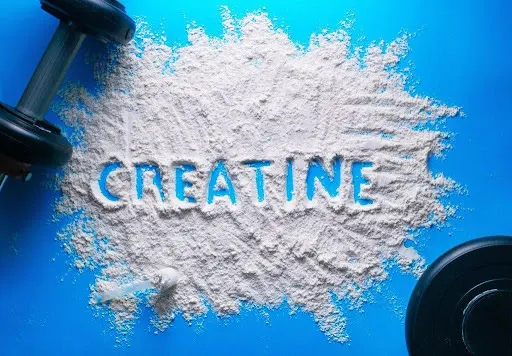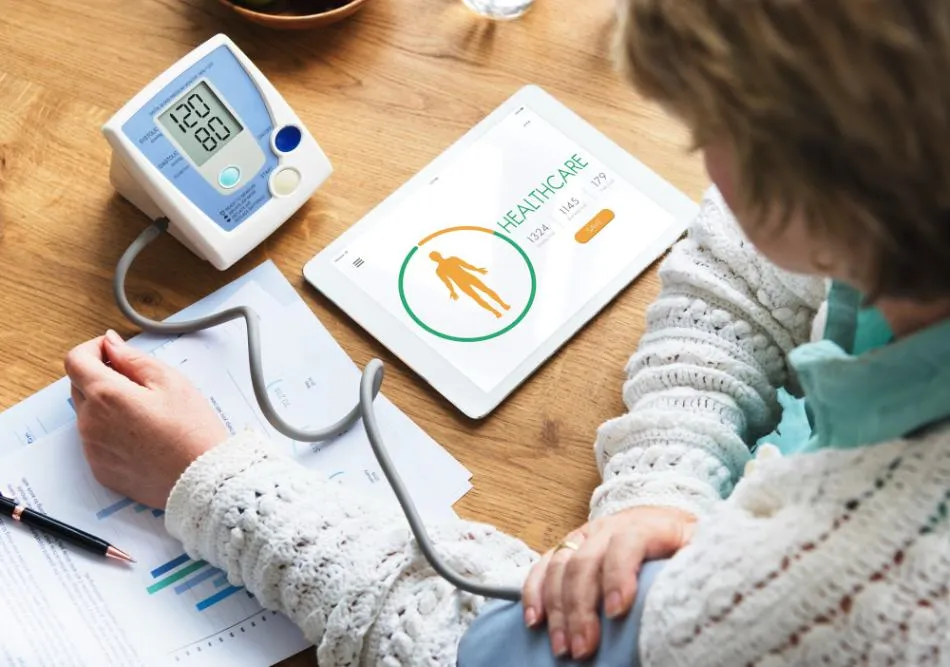Struggling with high blood pressure and wondering if natural supplements could help? You’re not alone. Every year, millions of Americans deal with the risks that come from uncontrolled blood pressure, like heart disease and stroke.
While lifestyle changes such as better diet, more activity, and less stress help a lot, sometimes it’s not enough. That’s where the best supplements to lower blood pressure come in. But how do you choose one that really works and is safe to take every day?
The truth is, the right supplements can be an extra layer of support. Not a magic fix. But combined with a healthy lifestyle and guidance from your doctor, they can help bring your blood pressure closer to normal. Let’s walk through what works, why it works, and how to pick smart in 2024.
10 Best Supplements To Lower Blood Pressure Effectively and Safely
1. Magnesium
Magnesium is one of the top supplements for high blood pressure. People often ask, "Does magnesium lower blood pressure?" Research says yes. It works by helping blood vessels relax. It also boosts nitric oxide, which keeps your arteries open and flexible. A Cochrane review confirms that potassium, calcium, and magnesium supplements each significantly reduce SBP compared to placebo.
In one review of 11 clinical trials, taking 365–450 mg of magnesium per day for about 3.6 months lowered both systolic and diastolic blood pressure. Another large study with over 200,000 people showed that for every 100 mg increase in magnesium, there was a 5% drop in blood pressure risk.
You can take magnesium glycinate or citrate; they’re easy to absorb. And if you’re on a low-magnesium diet, a supplement might help balance things. But always ask your doctor first, especially if you’re already on meds.
2. Vitamin D
Vitamin D deficiency is very common, especially in people with high blood pressure. Studies link low vitamin D levels with a greater risk of hypertension. And new research shows that boosting your vitamin D may lower that risk.
One analysis of over 300,000 people found that those with the highest vitamin D had up to 30% less risk of developing high blood pressure than those with low levels.
The best form is D3 (cholecalciferol). It's usually taken with a meal. Many doctors recommend checking your blood level before starting supplements. If you’re low, start with 1,000 to 2,000 IU daily. That helps get your numbers back on track without overdoing it.
3. Vitamin B Complex
Some forms of vitamin B lower blood pressure, especially in people with genetic issues like the MTHFR mutation. B2 (riboflavin), B6, B12, and folate all play a part in managing blood pressure.
Vitamin B2 helps with nitric oxide, while B6 and folate break down homocysteine, which can damage blood vessels if it gets too high.
Experts suggest taking a B-complex to cover all your bases. Especially if you're dealing with stress, poor diet, or certain medications, these vitamins can help fill the gaps.
4. Potassium
Potassium is essential for heart health. It works by helping your body flush out sodium. It also helps blood vessel walls stay relaxed and open.
A big meta-analysis found that potassium supplements lowered blood pressure significantly, especially in people eating too much sodium. Try to aim for 3,500 to 4,700 mg daily from both food and supplements if needed. But again, check with your doctor before adding potassium. Too much can be risky, especially if you have kidney issues.
5. CoQ10
Coenzyme Q10, or CoQ10, is made by your body but can get low as you age. It helps cells make energy and keeps your heart strong. It also works as an antioxidant, protecting arteries from damage.
A review of 17 studies showed that CoQ10 supplements lower systolic blood pressure by up to 11 mmHg. That’s about the same effect as some prescription meds. CoQ10 is best taken with food. Start with 100–200 mg per day.
However, the data is mixed. Some studies show only mild effects. Still, many experts believe CoQ10 is a solid option among natural supplements for hypertension.
6. L-Arginine
This amino acid boosts nitric oxide, helping blood vessels relax. In several studies, L-arginine supplements helped lower both systolic and diastolic blood pressure. Especially helpful in pregnant women or people with prehypertension.
Take it on an empty stomach, usually around 3,000 to 6,000 mg per day. It’s often combined with L-citrulline to improve absorption. This combo may work even better than L-arginine alone.
7. Vitamin C
Vitamin C helps protect arteries from damage and improves how well blood vessels dilate. It also helps your kidneys clear out excess sodium.
A review of 8 studies found that 300 to 1,000 mg per day of vitamin C helped lower blood pressure. Especially in people with high baseline levels. If you’re under a lot of stress or not eating enough fruits and veggies, a supplement might help.
8. Probiotics
Gut health plays a bigger role in blood pressure than we used to think. Studies now show that taking probiotics for at least 8 weeks can lead to a small drop in blood pressure.
The effect is stronger when taking multi-strain formulas with over 10 billion CFUs per day. Probiotics also lower inflammation and support better cholesterol.
They’re one of the safer options on the list and support many parts of your health beyond blood pressure.
9. Omega-3 Fatty Acids (Fish Oil)
Fish oil contains DHA and EPA, which support heart function. High doses have been shown to reduce both systolic and diastolic blood pressure. Inflammation also goes down, which helps your arteries stay more flexible.
Start with 1,000 to 2,000 mg per day, but you might need more if your triglycerides are high. Fish oil is also good for brain health and lowering bad cholesterol.
10. Folic Acid
Folic acid, also known as B9, may lower blood pressure by improving blood flow. It’s especially helpful for people with heart disease or those at risk.
You can find it in leafy greens, beans, and fortified grains. But a supplement ensures consistent intake. Aim for 400 to 800 mcg per day unless your doctor advises more.
Things To Bear In Mind While Taking Supplements To Lower Blood Pressure
Not all blood pressure-lowering supplements are safe for everyone. Some can interact with your meds or cause side effects. Always read the label and talk to your doctor.
Never replace your prescribed treatment with supplements. Think of them as a support tool. Also, buy from trusted brands that get third-party tested for purity and potency.
Be consistent with doses and don’t expect fast changes. Most supplements take a few weeks to show results.
Natural Herbs That Lower Blood Pressure
Some herbs work naturally as blood pressure reducers. Here are a few:
|
Herb |
How It Helps |
|
Garlic |
Contains allicin, which relaxes vessels and lowers inflammation |
|
Hibiscus |
Acts as a diuretic and helps reduce fluid retention |
|
Olive Oil |
Contains polyphenols that support heart and vessel health |
|
Cinnamon |
Helps lower insulin levels and improves vessel function |
|
Basil |
Has eugenol, which may ease tension in blood vessels |
|
Cardamom |
Full of antioxidants, it may support better blood pressure control |
These herbs can be added to food or taken as tea or capsules.
What Vitamins To Avoid With High Blood Pressure?
Some supplements can raise your blood pressure instead of lowering it. These include:
-
Licorice: It raises cortisol and sodium retention
-
Glutathione (high dose): May trigger hypertension
-
Guarana: It’s loaded with caffeine
-
Fish oil (very high doses): May thin blood too much
-
CoQ10 (in excess): Can act unpredictably
-
Siberian Ginseng: Can overstimulate the system
-
High-dose Niacin: Can spike blood pressure suddenly
So always stick to recommended doses and talk to your doctor first.
Final Thoughts
If you’re looking for the best supplements to lower blood pressure, the list above gives you solid, science-backed options. But don’t skip the basics: eat real food, move your body, manage stress, and get enough sleep.
Supplements are just that, supplemental. Use them wisely, with your doctor’s input, and you can make meaningful progress toward healthier numbers.
Stick with safe blood pressure supplements for daily use, especially those shown to work in strong research. And never rely on quick fixes. The best health changes come slow and steady.
Frequently Asked Questions
What is the fastest acting supplement to lower blood pressure?
L-arginine and magnesium are some of the fastest-acting supplements. They help relax blood vessels quickly, especially in people with very high blood pressure.
Is it safe to take potassium supplements daily?
It depends. If your kidneys are healthy and you’re not on potassium-sparing meds, it’s usually safe. But always check with your doctor.
How long before supplements start to lower blood pressure?
Most supplements need at least 4 to 8 weeks to show effects. Some may work faster, but steady use is key.
Can I take magnesium and vitamin D together?
Yes. They work well together and are often low in people with hypertension. Take them with meals for best absorption.
Do natural blood pressure supplements replace medication?
No. They help support healthy levels, but they don’t replace prescription meds. Always follow your doctor’s advice.

Reviewed by







